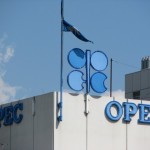Gold advanced in late European and early U.S. trading on a weaker dollar as disappointing producer inflation spurred speculation over delaying the imminent deceleration of Feds Quantitative Easing program amid concerns that deflation could harm the fragile U.S. economic recovery.
On the Comex division of the New York Mercantile Exchange, gold futures for December delivery traded at $1 331.20 per troy ounce at 14:27 GMT, up 0.81% on the day. The precious metal traded mostly higher throughout the day and ranged between days high and low of $1 331.90 and $1 315.40 per ounce respectively. The precious metal fell 0.9% on Tuesday following the release of U.S. retail sales data, but rebounded to a weekly advance of 1.4% so far.
Gold edged higher in the early U.S. session as the greenback lost positions amid disappointing U.S. PPI data. The dollar index, which measures the strength of the U.S. currency against a basket of six major counterparts, fell to a days low of 81.72 minutes after the release of the statistics, while days high stood at 81.91. The September contract traded at 81.74 at 14:28 GMT, down 0.05% on the day, trimming its weekly advance to little over 0.7%.
The dollar fell on Wednesday as the U.S. Labor Department reported that a drop in gasoline and natural gas prices held back its seasonally adjusted producer inflation. The government agency said that month-on-month, the U.S. Producer Price Index remained flat in July, confounding expectations for a 0.3% surge after a 0.8% rise in June. On an annual basis, the index advanced by 2.1%, again below market projections for a 2.4% gain and below the previous periods 2.5% jump.
The U.S. Labor Department also reported that month-on-month Core PPI, which excludes the more volatile energy and food costs, also underperformed analysts expectations and Junes 0.2% advance and rose by only 0.1%, which gave investors a sign that Feds monetary stimulus might remain untouched for a while longer. Year-on-year, Core producer inflation rose by 1.2%, the lowest reading since November 2010. This was below an anticipated 1.3% gain and Junes 1.7% surge.
The Federal Open Market Committee said after its most recent meeting that it wont taper Quantitative Easing just yet as risks of deflation that could harm the fragile economic recovery still persist.
Todays unexpectedly downbeat U.S. data offset some of the precious metals losses it posted on Tuesday following the Commerce Departments retail sales data. The government agency reported yesterday that retail sales rose for a fourth straight month by 0.2% in July but underperformed expectations for a 0.3% surge. June’s advance received an upward revision to 0.6% from 0.4%. Meanwhile, Core Retail Sales (Retail Sales less Autos) exceeded projections for 0.4% jump and gained 0.5% in July, while June’s reading was reassessed to 0.1% from a no-change state.
Market players will be keeping a close watch on the remaining key U.S. economic data for the week for further signs on what actions the Federal Reserve might take in September regarding its bond purchases. Thursday’s consumer inflation (CPI) should have advanced by 0.2% compared to June and 2.0% from a year earlier. Industrial Production is expected to have surged 0.3%, marking the same advance as in June. Both of Friday’s Building Permits and Housing Starts are projected to have advanced last month.
Elsewhere on the precious metals market, silver gained, while platinum and palladium posted minor daily losses. Silver for delivery in September traded at $21.660 an ounce at 14:23 GMT, up 1.49% on the day. Prices ranged between days high and low of $21.682 and $21.267. Platinum October futures traded at $1 496.60 an ounce, down 0.19% on the day. Futures held in range between days high and low of $1 499.80 and $1 485.50. Meanwhile, palladium for delivery in September fell to $738.60, marking a 0.04% decline. Prices varied between days high and low at $738.80 and $733.60 an ounce respectively.





